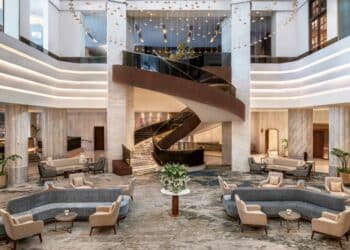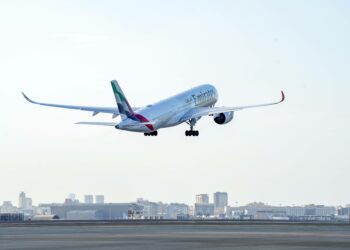As a new wave of restaurant entrepreneurs challenge traditional restaurant business models, Sven Sallaerts, co-founder of Netherlands-based Younique Concepts tells us the about their strategy for growth and development, and if their model could work in the Middle East.
 To make a statement in the world you need to keep up with new developments. Eating habits and patterns are changing rapidly. Consumer spend in the food sector is rising and there’s growth in the out-of-home channels. To start a new concept, it’s important to understand your market, consumer needs, and to consider current trends such as blurring, convenience, healthy, and sustainable.
To make a statement in the world you need to keep up with new developments. Eating habits and patterns are changing rapidly. Consumer spend in the food sector is rising and there’s growth in the out-of-home channels. To start a new concept, it’s important to understand your market, consumer needs, and to consider current trends such as blurring, convenience, healthy, and sustainable.
At Younique Concepts we have a clear goal, the development of sustainable and innovative hospitality concepts that respond to current trends and the needs of tomorrow. -We mainly focus on creating new innovative hospitality concepts but also consult existing hospitality companies, re-organising daily operations or one-off events.
With Younique Concepts we intend to draw a little outside the lines and have an opinionated look at the hospitality industry. For example, we work with profit sharing and a revolutionary human resource policy. That results in low staff turnover, low absenteeism, and a sense of ownership. In a North-European market where finding experienced and skilled staff is difficult, this is a huge advantage.
The classic hospitality industry has changed radically, most notably from chic and traditional to casual and contemporary. The changes provide a positive impulse for food turnover, resulting in economic growth and increasing consumer confidence. How can companies digitise their business model to influence the consumption behaviour of the consumer?
One of the ideas from Younique concepts is Pesca or theatre of fish, an example of a casual and contemporary concept where we turned the business model around and eliminated parts of what are often the two highest cost departments of a hospitality organisation, labour and food. When you open the doors of Pesca, don’t expect a traditional restaurant. It is a fish-market experience where the guest participates in the experience, they pick up the food when it’s ready and take their own drinks to the table. This creates an informal atmosphere and a significant reduction in staff cost. It’s a new experience that involves the guest in the concept while changing the industry by its experience, business model, and revenues.
Pesca has no set menu, which makes it very flexible regarding product choices, and we use dynamic pricing whereby prices are not fixed and items will lower in price during the evening to steer demand. By doing this, we create a zero waste policy, a maximum revenue gain on certain items, and a fun experience.
We believe our approach works in almost every culture worldwide, although adaptations need to be made. The Middle East does not have the same challenges as Northern Europe concerning labour or food costs, but the recruitment of skilled staff is likely to become more challenging in the near future. As the industry becomes saturated, we believe staff will keep making the difference in the future. You could really differentiate yourself with a different human resource strategy combined with for example profit sharing.



































































